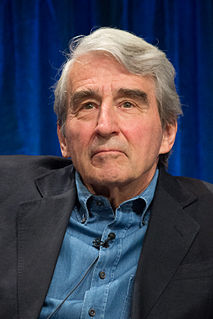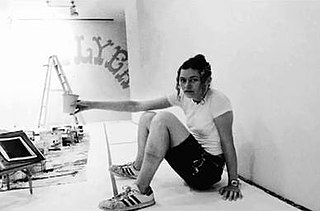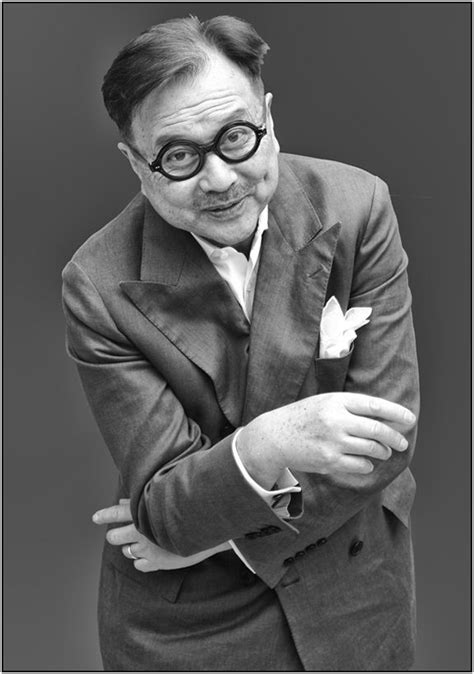A Quote by Sam Waterston
Painting is very interesting.
Quote Topics
Related Quotes
Having a background in doing printmaking and letterpress, I think that I became very interested in images that were flat and graphic. And my painting still today is very flat...American craft is like that too - the painting is very flat. And also the painting that you see on the storefronts, handmade signs, tend to be very flat. That's probably my biggest influence.
Another thing that you really do when you play, that you're supposed to do, is colors. You know, you cannot play with one color. If you play with one color, again, it's like watching a beautiful painting, a drawing, but it's all in blue or it's all in red. May be very nice, but not very interesting.
The true essence of Chinese culture is sophistication, refinement, the spirit of poetry. The spirit of ink painting and calligraphy lives on forever. Calligraphy is more important than painting. Chinese always consider nature. Man is a very small part of nature. That's why in Chinese painting you see huge mountains and man very small, very humble before nature. You must be harmonious and one with nature. You don't fight it. And then there's a bit of a poetry. Of course, it's very complicated, but also very simple.
All that stuff about flatness - it's this idea that painting is a specialized discipline and that modernist painting increasingly refers to painting and is refining the laws of painting. But who cares about painting? What we care about is that the planet is heating up, species are disappearing, there's war, and there are beautiful girls here in Brooklyn on the avenue and there's food and flowers.
When I was first painting the Monopoly guy I received a criticism. People said, "You're just painting cartoon characters, anyone can do that," but I'm actually a very skilled artist. That's why I released a Jack Nicholson portrait right after that that was very detailed in the face to show my skills.
You have bits of canvas that are unpainted and you have these thick stretcher bars. So you see that a painting is an object; that it's not a window into something - you're not looking at a landscape, you're not looking at a portrait, but you're looking at a painting. It's basically: A painting is a painting is a painting. And it's what Frank Stella said famously: What you see is what you see.
Stealing, of course, is a crime, and a very impolite thing to do. But like most impolite things, it is excusable under certain circumstances. Stealing is not excusable if, for instance, you are in a museum and you decide that a certain painting would look better in your house, and you simply grab the painting and take it there. But if you were very, very hungry, and you had no way of obtaining money, it would be excusable to grab the painting, take it to your house, and eat it.
Like commercial stuff is sort of cheap and disposable and fun and can be sort of interesting in many ways. I love being in popular culture and existing in the evolution of popular culture. But it's so different from painting, and it's so different from that sort of slow, contemplative, gradual process that painting is.



































